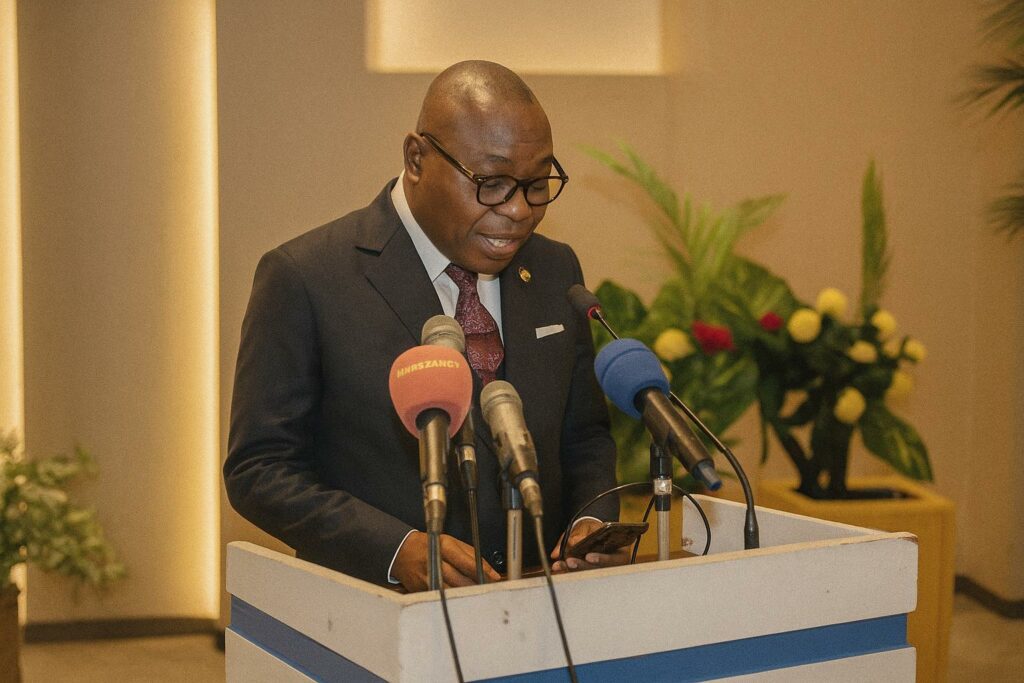Cybercrime’s Macroeconomic Shadow over Africa
The arithmetic is sobering. The International Telecommunication Union estimates that a cyber-attack strikes somewhere in the world every thirty-nine seconds, and that the global bill for malicious intrusions could rise to 9.5 trillion dollars by 2025 (ITU 2024). On the African continent, where digital adoption is accelerating faster than the pace of regulatory harmonisation, the economic haemorrhage already surpasses four billion dollars each year. Interpol’s latest African Cyberthreat Assessment confirms that corporate entities now endure an average of 3 370 incursions every week, a year-on-year surge of more than ninety per cent (Interpol 2023). Such figures are no longer mere balance-sheet irritants; they erode fiscal space, deter foreign direct investment and complicate national debt servicing at a moment when multiple African treasuries are managing post-pandemic headwinds.
Congolese Stewardship in a Fluid Threat Landscape
Against that backdrop, Brazzaville’s decision to host the thirteenth regional Cyber Drill carries symbolic and practical weight. Minister of Posts, Telecommunications and the Digital Economy Léon Juste Ibombo opened the exercise by reminding delegates that ransomware, phishing and large-scale data exfiltration now constitute a strategic risk equal to energy insecurity or maritime piracy. His assessment aligns with the African Union Convention on Cyber Security and Personal Data Protection, which urges member states to treat cyber resilience as a sovereign obligation rather than a discretionary upgrade. Observers note that Congo-Brazzaville, having adopted its National Digital Plan 2025, is positioning itself as a convening power able to translate technical jargon into diplomatic traction.
Digital Sovereignty as Economic Statecraft
Deputy-Mayor of Kintélé Stella Mensah Sassou Nguesso captured the political subtext succinctly: a credible digital economy cannot emerge in the absence of robust cybersecurity. The argument resonates with regional finance ministries that have staked growth forecasts on mobile banking, e-commerce and cross-border fintech. A single breach at a large payment switch can, within hours, reverberate through remittance corridors, customs-tax interfaces and even electoral management systems. By calling for a ‘mastery’ of cybersecurity, Congolese officials implicitly cast the discipline as a lever of monetary stability and national reputation—core currencies in contemporary statecraft.
Testing Collective Muscle: Lessons from the Cyber Drill 2025 Scenario
The Brazzaville drill simulated a coordinated ransomware campaign targeting critical infrastructure in energy, banking and public health. Teams from nine Central and West African states ran parallel playbooks, cross-reporting indicators of compromise within minutes instead of hours—an improvement over the 2022 benchmark, according to observers from the Economic Community of Central African States. Notably, private-sector cyber response firms were embedded inside national Computer Emergency Response Teams, mirroring the multi-stakeholder model endorsed by the Paris Call for Trust and Security in Cyberspace. Analysts praised the exercise for stress-testing legal frameworks on evidence sharing, an area that has historically slowed extraditions and asset recovery.
The Diplomacy of Bytes: Toward a Continental Norm
The drill’s intellectual dividend lay in its side-events, where jurists, insurers and military planners debated whether a major digital assault should trigger mutual-defence clauses similar to those employed by traditional security alliances. While consensus remains elusive, the very articulation of ‘cyber solidarity’ marks progress. Congo-Brazzaville, analysts note, has advanced a pragmatic middle line: fortify national capacities first, but embed them in interoperable protocols so that response time is not hostage to bureaucracy. That stance, shared by the African Union’s Peace and Security Council, could inform the forthcoming update to the Malabo Convention, scheduled for ministerial review next year.
Balancing Innovation with Protective Regulation
Yet cyber resilience is not merely a question of firewalls and incident drills. Start-ups across Brazzaville, Pointe-Noire and Kinshasa caution that over-prescriptive compliance regimes can stifle innovation capital. Here the government’s challenge echoes debates in Brussels and Washington: how to calibrate data-protection statutes that respect privacy without suffocating machine-learning models vital to e-health or agricultural forecasting. Minister Ibombo signalled openness to regulatory sandboxes, an approach that could preserve dynamism while subjecting new code to controlled stress tests.
From Exercise to Execution: The Road Ahead
Brazzaville’s Cyber Drill 2025 may not erase the four-billion-dollar hole in Africa’s ledger overnight, but it legitimises a governance vocabulary that treats cyber defence as infrastructure, not ornament. The task now is to transform the muscle memory rehearsed during simulations into standing doctrine embedded in procurement cycles, education curricula and diplomatic talking points. By doing so, Congo-Brazzaville positions itself as both beneficiary and custodian of a safer digital commons—an ambition that, if realised, could shield fiscal stability and foster the trust upon which the continent’s digital transformation ultimately depends.

